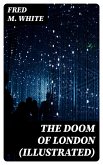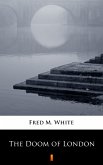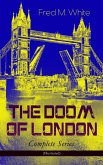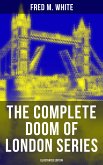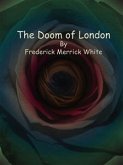Fred M. White's 'The Doom of London' emerges as a riveting exploration of catastrophe and societal breakdown. DigiCat Publishing has meticulously resurrected White's seminal narratives in a new modern format, proffering readers a bridge to early 20th-century anxieties. Within the pages of this literary artifact, White intricately weaves a tapestry of speculative fiction, marked by its prescient rendering of disaster in an urban setting, thereby contributing a piece to the puzzle of Edwardian literary context. His stylistic alchemy blends journalism with imaginative projection, rendering a work that oscillates between fiction and chilling plausibility. White's oeuvre, spread across journalism and fiction, speaks to an enduring fascination with the fragile edifice of civilization. His background as a correspondent undoubtedly informed 'The Doom of London,' with its vividly depicted collapses echoing the anxieties of his contemporary readership. Peering through the lens of his experience, White scrutinizes the impact of disaster on the human psyche, positioning his work in a rich seam of literary exploration that dissects the undercurrents of early modernity's complex societal structures. 'The Doom of London' stands as an essential read for aficionados of classic speculative fiction and scholars of Edwardian literature alike. DigiCat Publishing's commitment to literary preservation allows a new generation to appraise White's prescient vision. As much a chamber piece of haunting ambiance as a reflection on the durability of the human spirit, this tome beckons readers to delve into its depths, engaging with themes that resonate as profoundly today as they did a century ago.
Dieser Download kann aus rechtlichen Gründen nur mit Rechnungsadresse in A, B, BG, CY, CZ, D, DK, EW, FIN, F, GR, H, IRL, I, LT, L, LR, M, NL, PL, P, R, S, SLO, SK ausgeliefert werden.



